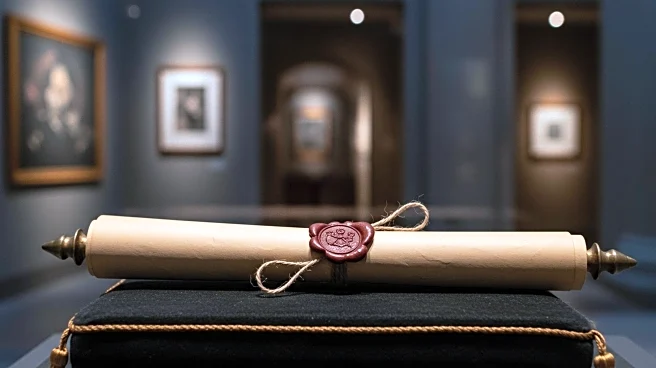What is the story about?
What's Happening?
The FBI has returned a stolen page from a 500-year-old manuscript signed by Spanish conquistador Hernán Cortés to Mexico. The document, dating back to February 20, 1527, outlines payment structures for the Spanish military's exploration efforts. It holds historical significance as it details Cortés' journey from Europe to the Americas and the establishment of New Spain. The manuscript was repatriated to Mexico's national archives, where it was discovered missing in 1993. The FBI's art crime team, working with authorities in Atlanta and New York, recovered the page, which had changed hands multiple times since its theft.
Why It's Important?
The return of the document underscores the importance of preserving cultural heritage and combating the trafficking of antiquities. It highlights the collaborative efforts between the U.S. and Mexico in protecting historical artifacts. The recovery of such documents aids in understanding historical events and cultural narratives, contributing to academic research and education. This case also emphasizes the role of law enforcement in addressing art crimes and the significance of international cooperation in repatriating stolen cultural property.
What's Next?
While no prosecutions will occur due to the document's complex history of ownership, the FBI's successful recovery may encourage further international collaboration in similar cases. Mexico's national archives will continue to safeguard the document, enhancing its historical collection. The case may prompt other countries to seek assistance in recovering stolen cultural artifacts, potentially leading to more robust international agreements and protocols for art crime investigations.















